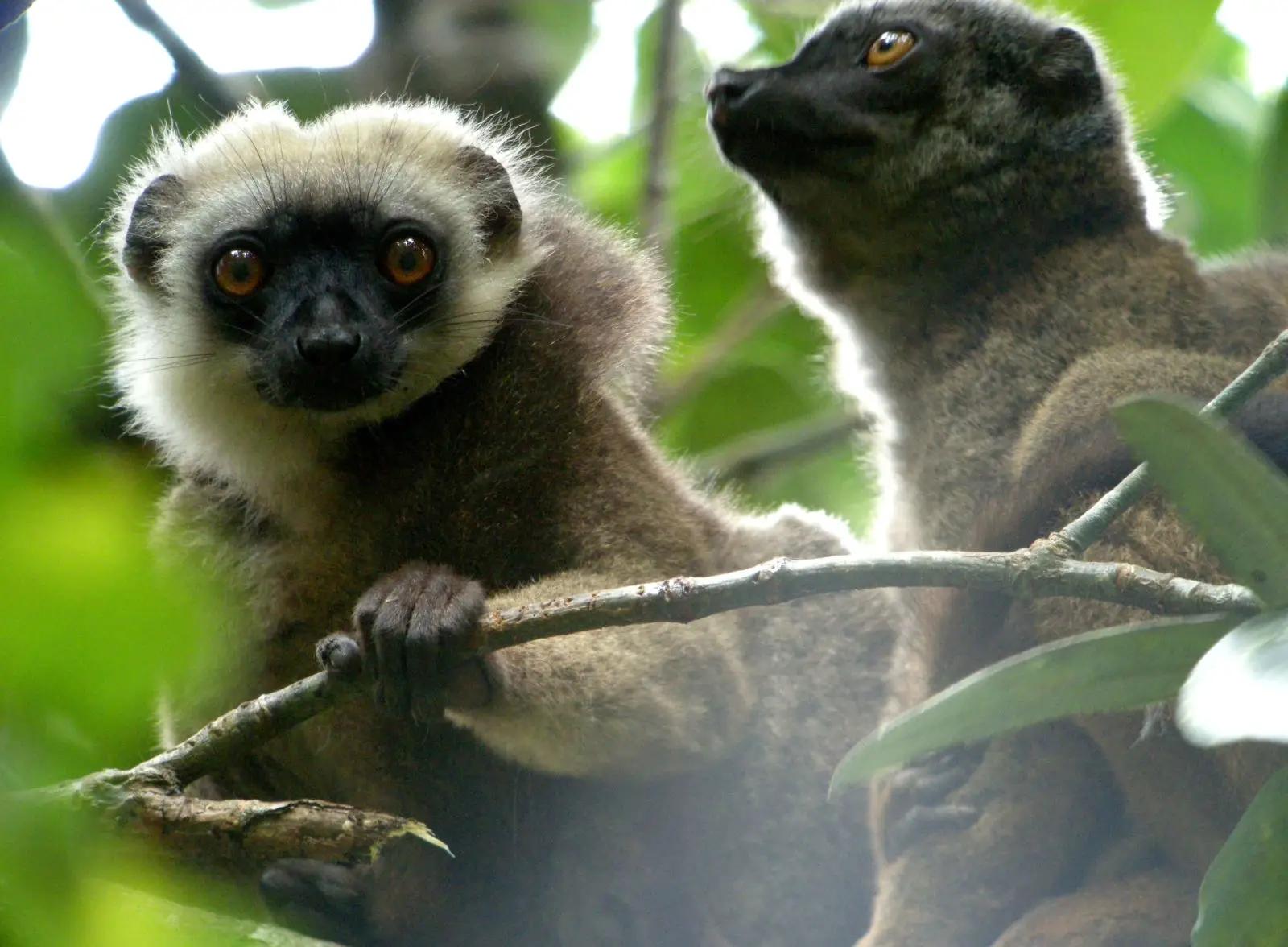La Palmyre, France
Dietary transition: towards a fruit-free diet for great apes
What impact on social relationships and microbiota in great apes? Behavioural and microbiotic effects of dietary change

Project objective
As part of our "Animal Welfare Commitment" (EBEA) programme, we have developed a research project with La Palmyre Zoo on the behaviour and gut microbiota of great apes during a transition to a fruit-free diet.
Description
Fruits developed for human consumption differ in their nutritional composition from the wild fruits eaten by primates in their natural habitat. The consequences of a diet too rich in sugars and too low in fibres on the health and behaviour of captive primates vary: weight issues, diarrhoea, deficiencies, diabetes, liver or heart diseases, aggressive behaviour and food competition, as well as social anxiety.
Several studies have indicated that transitioning to a fruit-free diet has multiple beneficial effects in primates: improved stool consistency, better weight, improved coat condition, better blood glucose levels, reduced risk of diabetes, better survival of young individuals, increased time spent foraging, and reduced individual aggression, among other benefits (Britt et al. 2015 ; Dennis et al. 2015 ; Less et al. 2014; Plowman 2015).
Thus, the use of fruit-free diets has become a widespread approach in the world of zoological parks in recent years. However, its implementation remains a challenge, and few publications provide detailed protocols or extensive behavioural monitoring. Moreover, while studies are conducted on the microbiota of great apes in the wild (Gomez et al., 2015), there is no equivalent research in captivity. To our knowledge, there are also no scientific publications on dietary transition in orangutans, who are among the great apes studied for this project.
During this project, several factors were monitored: the weighing of rations and leftovers, stool condition, coat condition, dietary preferences, as well as feeding and social behaviours.
These data were collected by the Akongo team, using the Akongo Welfare Manager app and the Cybertracker app, in collaboration with the La Palmyre team.
Results
The study is ongoing – results will be shared soon!
Animal welfare commitment
The approach taken at La Palmyre Zoo is part of both a proactive strategy to anticipate potential health issues related to a diet too rich in fruits and a broader initiative to change practices based on current knowledge of physiological and behavioural needs in primates.
This same approach could later be applied to other great ape species and in other zoos.
Bibliographic references
Britt, S., Cowlard, K., Baker, K., & Plowman, A. (2015). Aggression and self-directed behaviour of captive lemurs (Lemur catta, Varecia variegata, V. rubra and Eulemur coronatus) is reduced by feeding fruit-free diets. Journal of Zoo and Aquarium Research, 3(2), 52-58. https://doi.org/10.19227/jzar.v3i2.119
Dennis, P. M., Raghanti, M. A., Meindl, R. S., Less, E., Henthorn, E., Devlin, W., Murray, S., Meehan, T., Kutinsky, I., & Murphy, H. (2019). Cardiac disease is linked to adiposity in male gorillas (Gorilla gorilla gorilla). PLoS One, 14(6), e0218763. https://doi.org/10.1371/journal.pone.0218763
Gomez, A., Petrzelkova, K., Yeoman, C. J., Vlckova, K., Mrázek, J., Koppova, I., Carbonero, F., Ulanov, A., Modry, D., Todd, A., Torralba, M., Nelson, K.E., Gaskins, H.R., Wilson, B., Stumpf, R.M., White, B.A. & Leigh, S. R. (2015). Gut microbiome composition and metabolomic profiles of wild western lowland gorillas (Gorilla gorilla gorilla) reflect host ecology. Molecular ecology, 24(10), 2551-2565. https://doi.org/10.1111/mec.13181
Less, E.H., Lukas, K.E., Bergl, R., Ball, R., Kuhar, C.W., Lavin, S.R., Raghanti, M.A., Wensvoort, J., Willis, M.A. & Dennis, P.M. (2014). Implementing a low‐starch biscuit‐free diet in zoo gorillas: the impact on health. Zoo biology, 33(1), 74-80. https://doi.org/10.1002/zoo.21115
Plowman, A. (2015). Fruit-free diets for primates. In Proceedings of the Eleventh Conference on Zoo and Wildlife Nutrition, AZA Nutrition Advisory Group, Portland, OR.
Learn more about our solutions
- Implementation
Discover how to effectively deploy our EBEA program in your institution.
- Methodology
Discover our unique approach to animal welfare, based on years of research and innovation.
- Animals
Discover the species we monitor and the specific programmes available for each.
Examples of research projects
Discover some of our interventions and achievements as part of the Evidence-Based Ethology & Animal Welfare (EBEA) programme.
The research are carried out in zoos or laboratories. Data can be collected by our team and/or the institution's team, or through the placement of an intern (Master 1, Master 2, gap year, post-master).

Conures - tamarins: a mixed species exhibit
Parc de Clères et Ménagerie du Jardin des Plantes, France
Developing multi-species enclosures while ensuring the well-being of all animals.
Learn more
Making feeding more complex for tigers in captivity
Beekse Bergen, Netherlands
Using stimulating feeding devices for tigers to promote physical exercise and their well-being
Learn more
Cohabitation of female Pygmy hippos
Parc Animalier d'Auvergne, France
An innovative study to facilitate captive management
Learn more
Contact introduction for White-fronted lemurs
Poitiers, France
Reducing animal isolation through cooperation between zoos
Learn more